
Denmark Activity Report PDF
Fehmarnbelt Fixed Link
The tender process is on-going following the competitive dialogue procedure. Nine joint-ventures compete for the four civil works’ contracts. The civil works’ contracts for the coast-to-coast link are as follows; 1) Dredging of the trench and land reclamation; 2) Construction of the northern section of the IMT; 3) Construction of the southern section of the IMT; 4) Construction of the portal structures, ramps and associated land facilities. Currently dialogue and tender evaluation phase continue for the civil works contracts. Sign of contracts is expected at the end of 2015.
Prior to start of construction works for the four civil works contracts, several small contracts have been prepared and some are currently under construction. They include: upgrade of roads and new site roads, a new pumping station, clearing of the production area, preparation of utility connections for electricity, water and sewage etc.
The Fehmarnbelt project is one of the biggest construction projects in Europe with an estimated construction cost of more than 6 billion Euros. The work includes an 18 km immersed tunnel connecting Germany and Denmark close to the existing Rødbyhavn-Puttgarden ferry line. The tunnel is cast in watertight concrete with road and rail tubes in one cross-section with two motorway tubes on the west side and two rail tubes on the east side. A central corridor for installations and an escape passage is provided between the two road tubes.


Copenhagen Metro Circle line (Cityringen)
The construction works for the Cityringen metro lines continues. As of mid-April 2014 most of the stations has been excavated and 13 of 17 stations have had the base slab cast and internal concrete slabs and walls are in progress. Tunnelling from the Tømmergraven shaft towards The Copenhagen main station has successfully been completed with a double breakthrough of two TBMs into the Copenhagen Main Station box on the 29 January 2015. The breakthrough was witnessed by Danish Prime Minister Helle Thorning-Schmidt, see Photo below.
 Copenhagen having 24 new undergroundstations
Copenhagen having 24 new undergroundstations
The operation and maintenance centre for the metro is completed and the first trains has been received from Ansaldo of Italy and are presently being tested and O&M centre.
Metro to North Harbour:

 A 2.5 km extension of the new Cityringen metro line in Copenhagen has been designed by the Ramboll-Arup JV in association with COBE Architects.
A 2.5 km extension of the new Cityringen metro line in Copenhagen has been designed by the Ramboll-Arup JV in association with COBE Architects.
The project consists of a twin running tunnel, 1.8 km long, from Sortedams Sø bifurcation chamber at the Cityringen Metro , running to a new underground station at Nordhavn and then a short section of cut and cover tunnel and ramp leading up to a 250 m long elevated portion of the line, terminating at the new Orientkaj station. The underground works contract has been awarded to MetNord JV (Züblin and Hochtief) the contract includes the twin bored tunnel and a rescue shaft, the underground station at Nordhavn plus and section of cut and cover tunnel and a ramp.
The execution of the secant piles for the station box is completed slightly ahead of schedule. The station box is used as launching shaft for the TBM’s. Excavation will start in May 2015 allowing the first TBM to start in March 2016.
The tender for the elevated section and Orientkaj station will be issued in late spring 2015.
Metro to South Harbour
A 5 km extension to the South harbour area of the new Cityringen metro line in Copenhagen is being designed by the COWI-Systra JV in association with Arkitema Architecs. The project will connect the Cityringen to the S and regional trains at Ny Ellebjerg station and will provide a metro line for the new town development area in the South Harbour. The project consists of 5 new stations and 5 km of metro lines. Four of the five stations will be underground stations. The fifth station, Ny Ellebjerg, which will link the Cityringen metro line to the S-trains, the trains to Sweden and the regional and national trains will be either an at grade or an underground station. The underground solution will allow for a fure extension for the metro line but will require a higher capital cost investment which at present is not included in the budget. The tunnels will be twin running tunnel constructed by two TBM of either EPB or slurry type. The tunnel will be located in the Copenhagen limestone and for the Southern part in Bryozoan limestone. There is a known fault zone, the Carlsberg fault, in between the two types of limestone. The stations will be cut&cover stations following the same concept as used for the Cityringen metro line with the architectural design adjusted to the local town conditions. The project includes two cross overs to be constructed in open box or caverns structures. If the at grade station is selected for the Ny Ellebjerg interchange station the project will include a 160 m cut&cover tunnel, a ramp and an open cut and elevated section of 400 m. For the underground station solution at Ny Ellebjerg the entire metro line will be underground. The South Harbour metro extension will connect to the Cityringen at the Havneholmen bifurcation chamber presently being constructed as part of Cityringen.
The tender process for Contractors will start in mid-2016 and the project is planned for completion in 2023
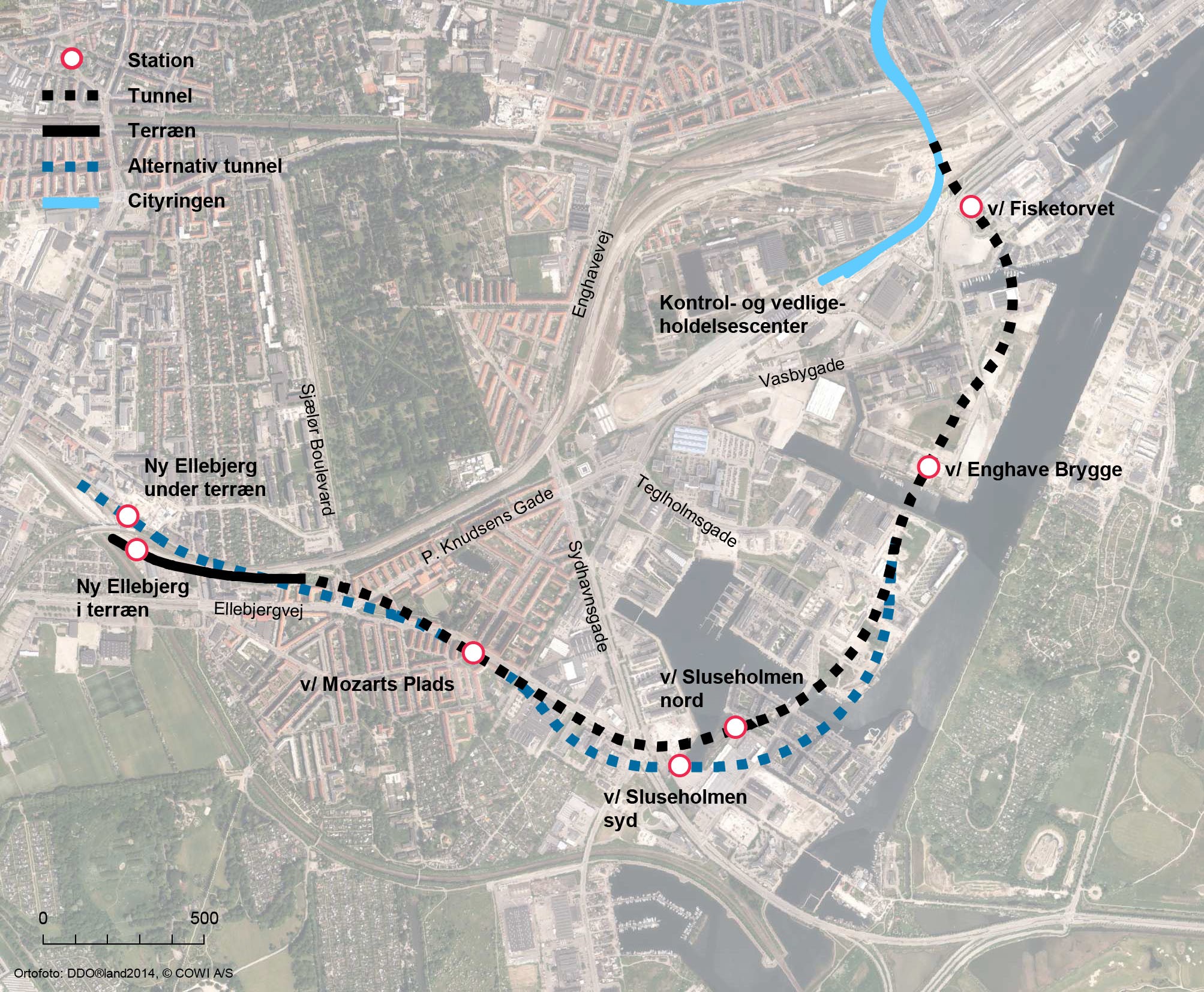
Nordhavnsvej Tunnel
The main construction contract for the Nordhavnsvej Tunnel was signed in August 2011 with the contractor Züblin and the road will be opened in 2017. Nordhavnsvej will be approximately 1.65 km with a 620 m Cut & Cover tunnel. The cross section of the tunnel consists of 2 lanes in each direction.
An extension of the Nordhavnsvej tunnel is presently (May 2015) being tendered for consultanting service. The extension will establish a road connection to the new town development area in the Northern Harbour.
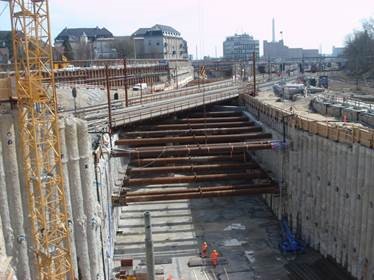
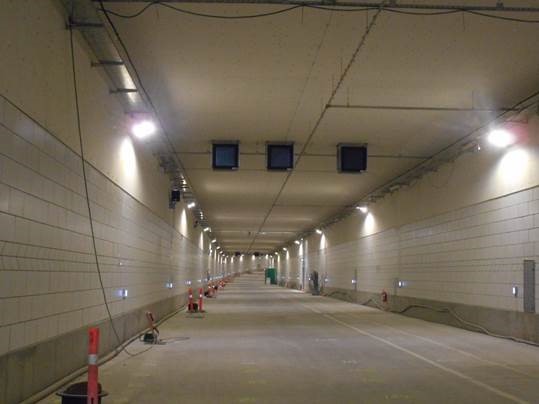
Copenhagen – Ringsted:
The new high-speed railway alignment from Copenhagen to Ringsted is branching from the existing railway in Copenhagen and going through urban areas in the city. Ramboll is Clients designer for Urban Civil Work contracts which includes construction activities on an approx. 3.5 km long stretch comprising 2 cut-and-cover tunnels (approx. 1,8 km in total length) and 4 troughs. The Contractor for the project is Per Aarsleff A/s with COWI AS as responsible for the detailed design.
The construction works are up to full speed with one of the tunnels being half excavated, where the ground is retained by sheet pile walls. The second tunnel is retained by secant piles and the installation of the piles is on-going. The troughs are constructed with a use of both sheet piles and secant piles with a combination of sealed concrete base slabs and free draining ballast tracks. First concrete slabs were cast in spring 2015. Mid spring 2015 the contractor is going to install prefabricated roof elements on one of the tunnels. The contractor keeps the tight schedule well and is on track to complete the civil works by Jan 2017.
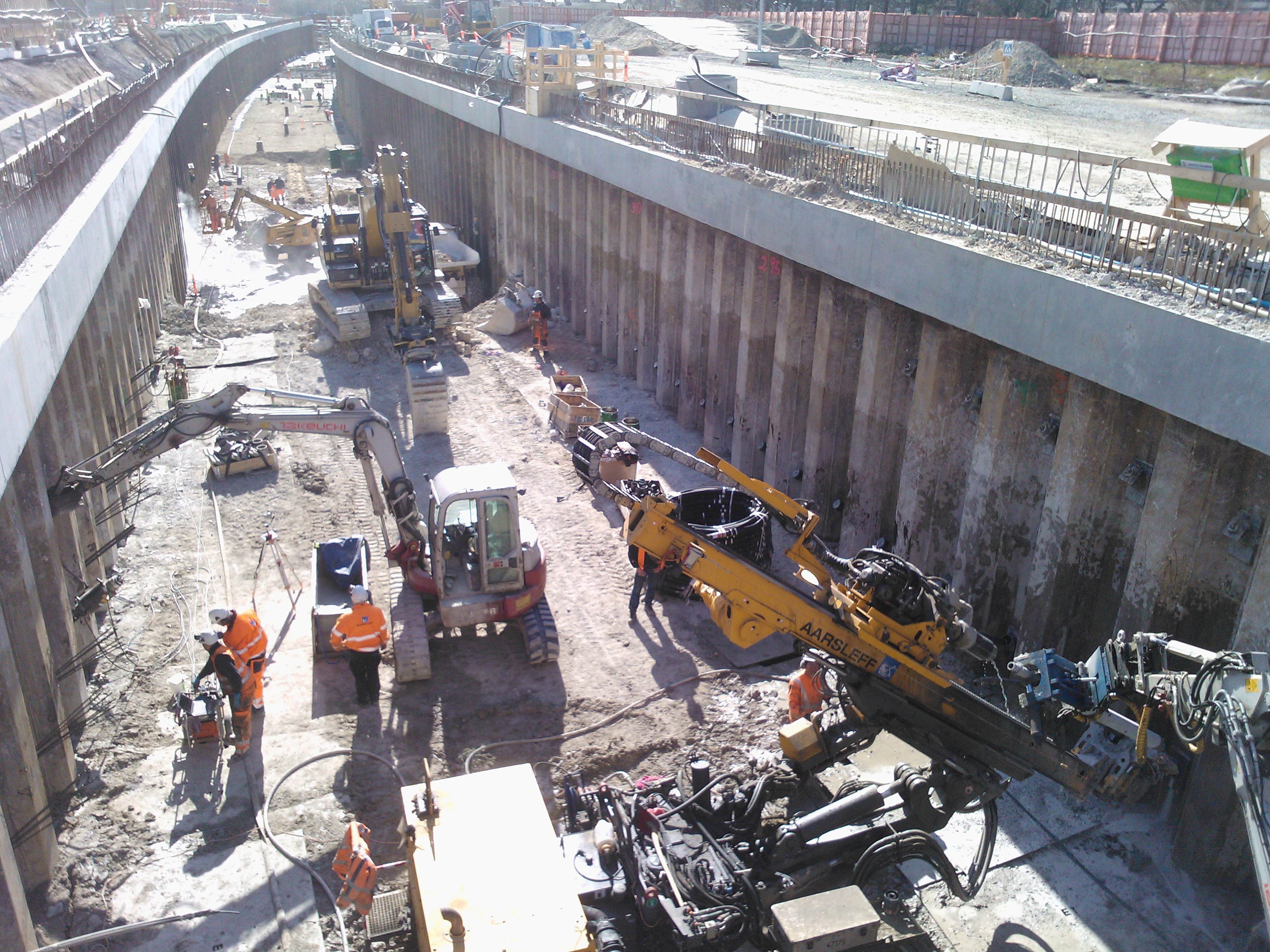
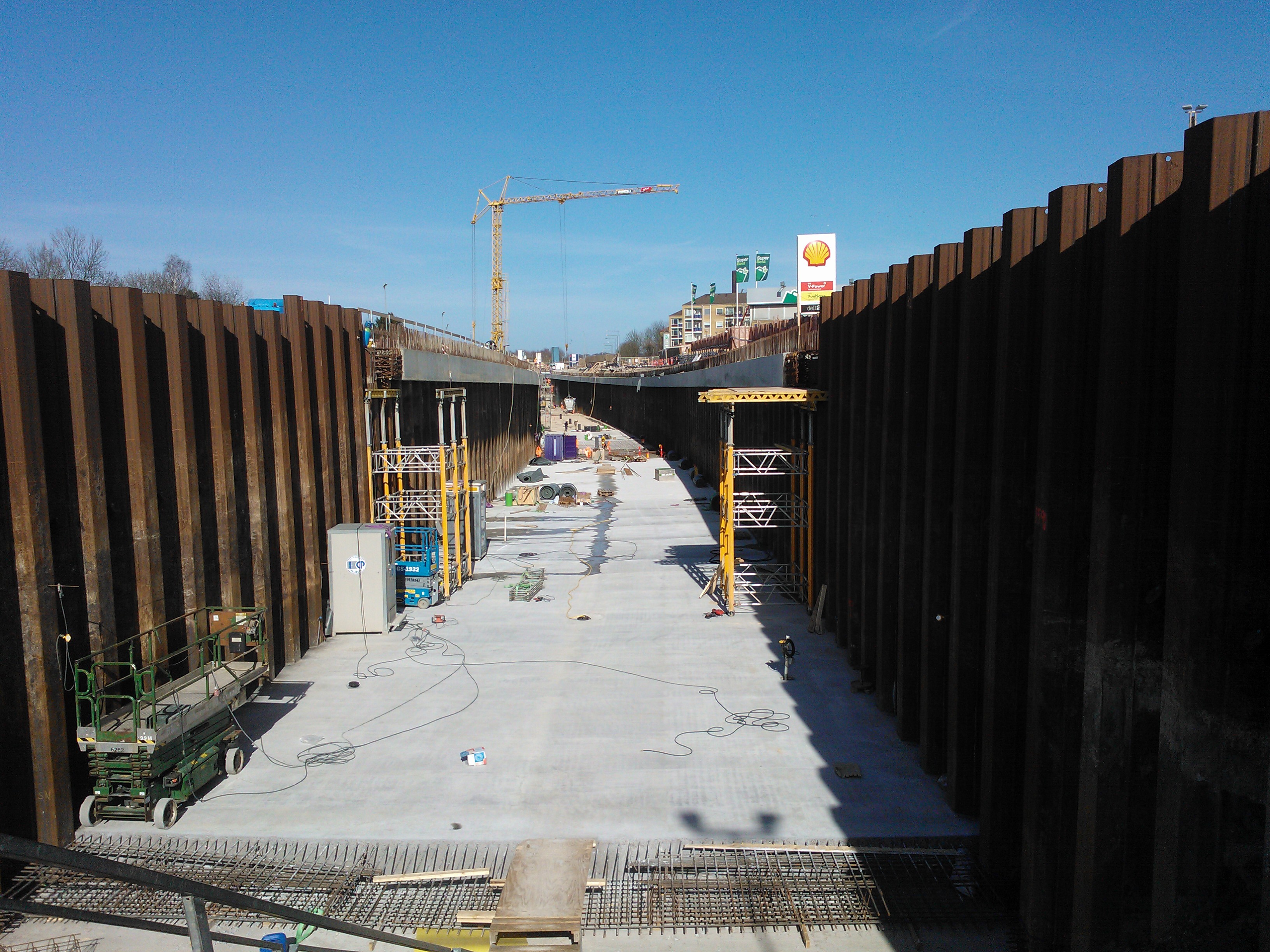
Vejle Fjord
As a part of the objective to save time travelling from Copenhagen to the major cities in Funen and Jutland by rail , The Danish road authority, Vejdirektoratet, is preparing an Environmental impact assessment (EIA) for four high-speed rail alignments crossing Vejle Fjord in Jutland. The EIA will consider three bridge alternatives and one tunnel solution, and is expected to be completed at the end of 2016.

